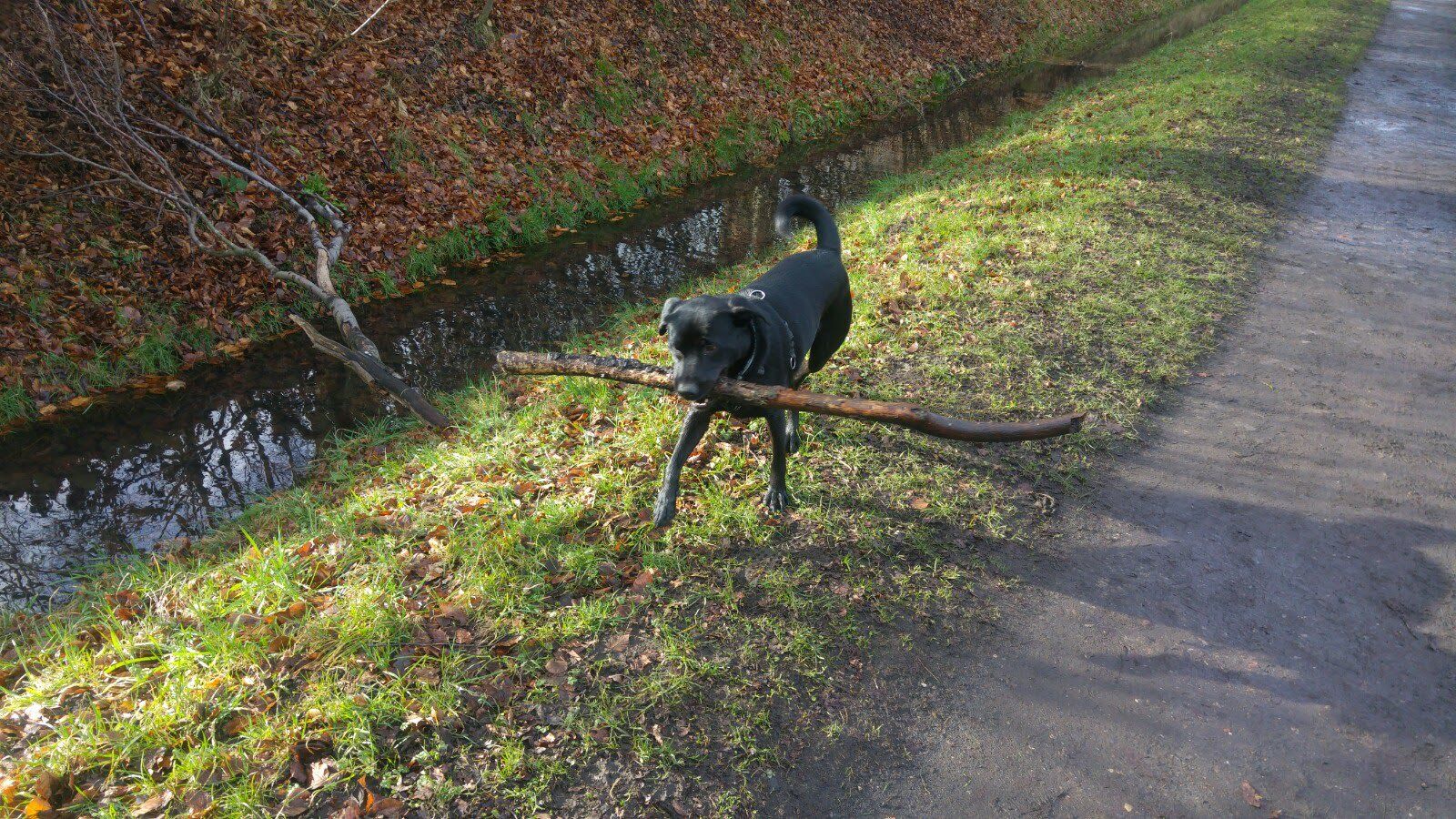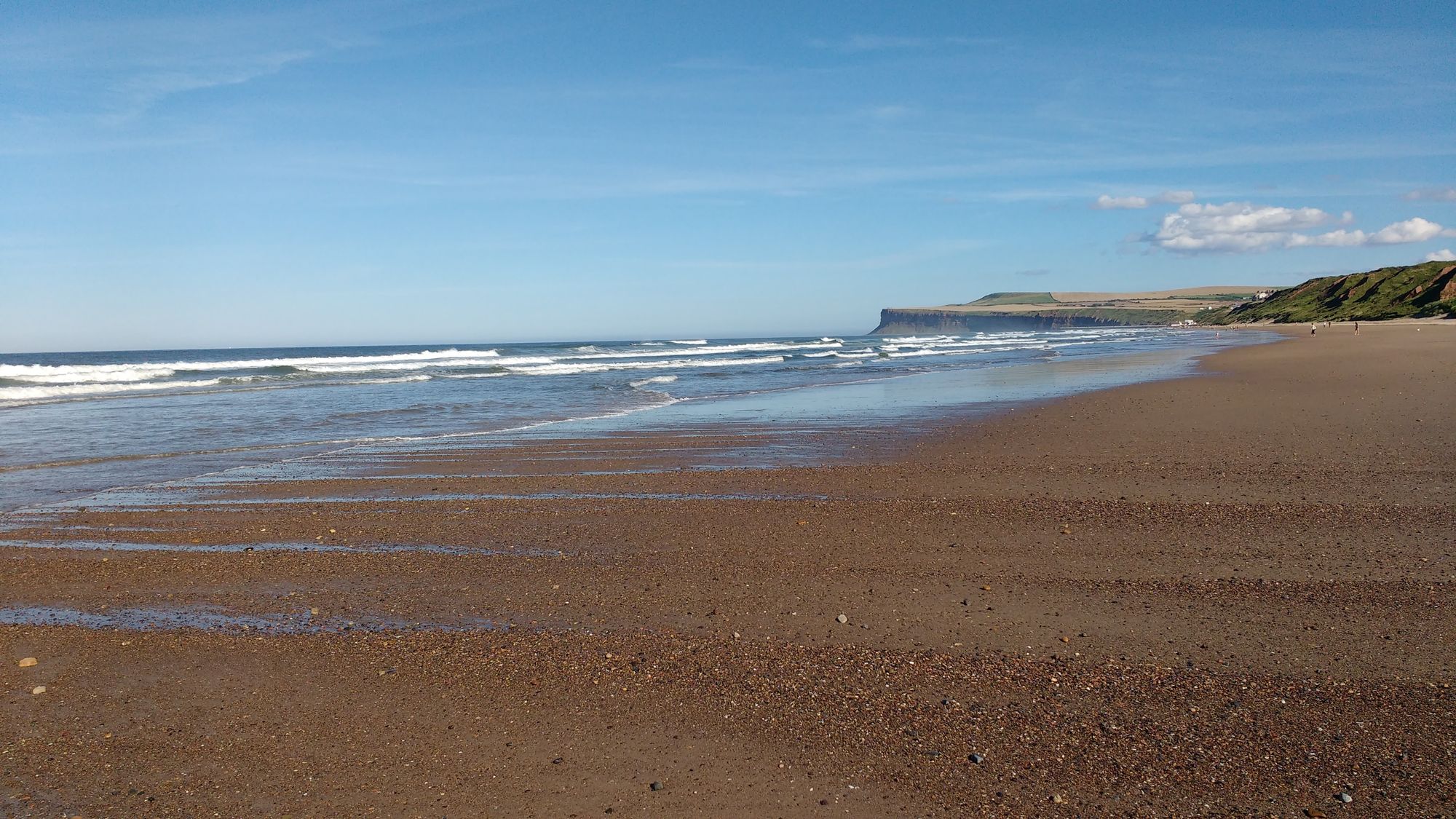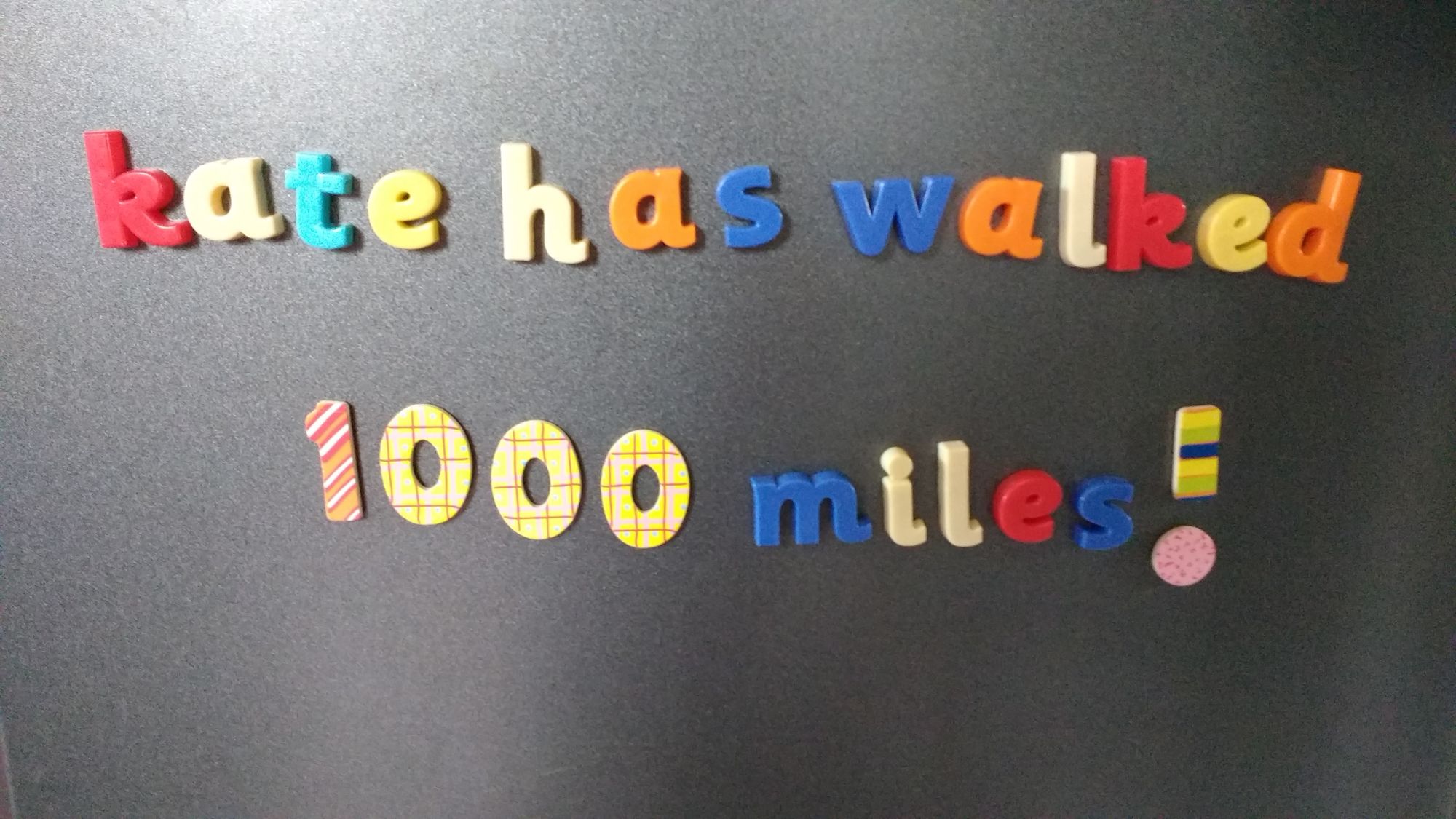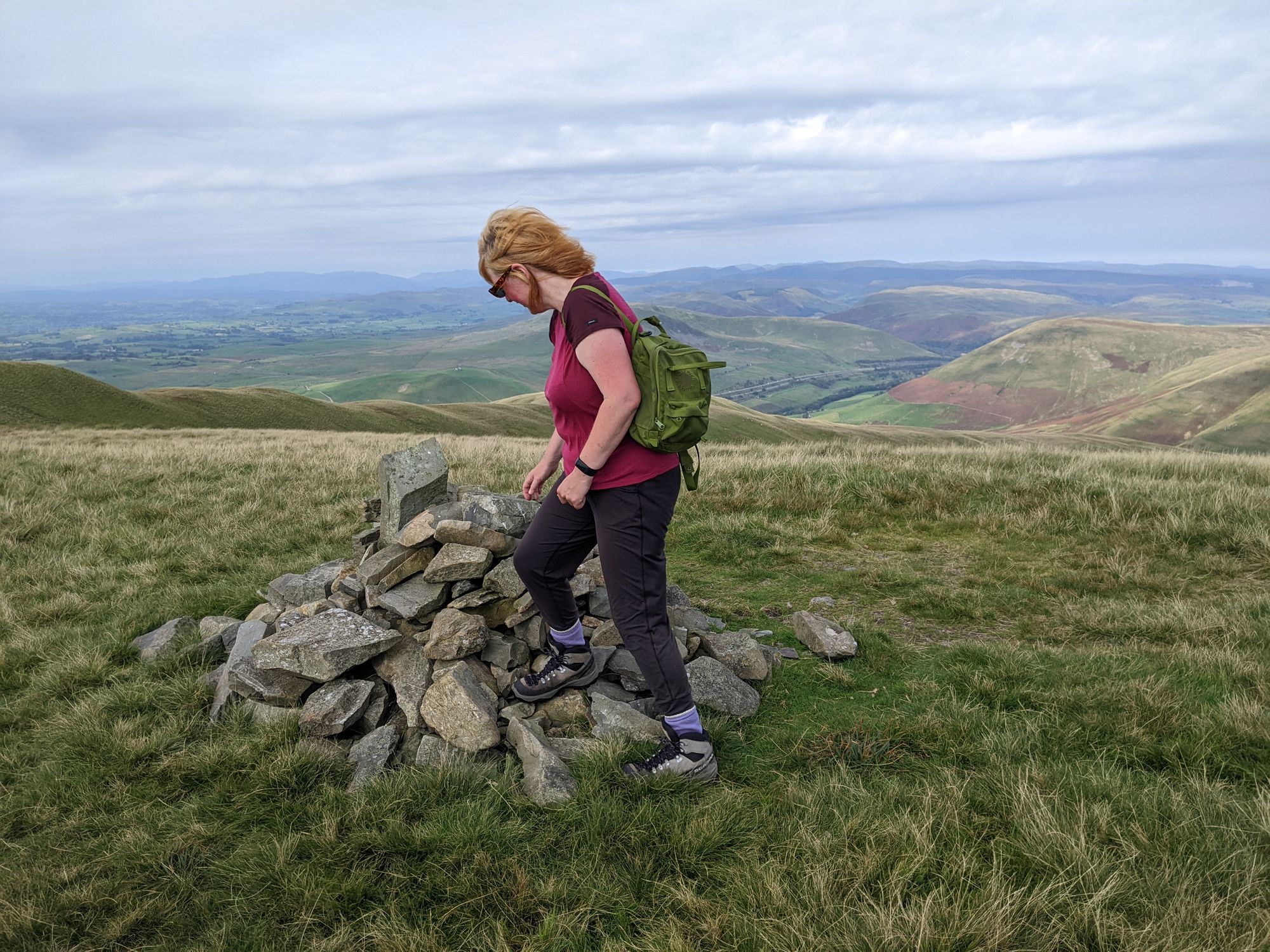The adventures of Superlung: walking with one lung

“Walking is man’s best medicine.” – Hippocrates
When I was diagnosed with a rare lung cancer (a neuroendocrine tumour (NET) also known as a carcinoid) in 2015, the advice was to be as fit as possible in preparation for surgery. I was a runner but this had become increasingly challenging as my symptoms had increased - breathlessness, tiredness, a cough with blood - most of which I had put down to being a busy Mum of a young family and teacher. I had always walked, well since I stopped refusing to get out of the car as a less enthusiastic teenager, and was an owner of a extremely high maintenance young black Labrador. However, walking took on a new importance. It wasn't clear whether I might get to keep my left lung, how tough recovery could be and whether I might need further treatment. Through this sense of powerlessness, I walked.

I walked everyday from diagnosis to operation - often in the Winter darkness, often whilst trying to make sense of what my diagnosis meant, often feeling numb. The walks gave me time to process what cancer meant for myself and my young family. Putting one foot in front of another had a meditative quality - walks that I did daily allowed me to escape, slow down and process. They also gave me a different relationship with my body (which felt broken due to my diagnosis). Walking was something I could do and I always felt better afterwards - stronger, more positive, more accepting. It was also during this time that I found pure joy in longer, more scenic walks that I no longer took for granted. Indeed, my last walk before my operation was a favourite with family - Marske to Saltburn along the beach - and a very noisy black Lab.

My operation took place on 9th February, 2016 - the day my remaining lung (affectionately known as Superlung) had to take over. I was told that the tumour was in an airway and, as a result, the whole of my left lung had been removed - pneumonectomy. Those first few steps I took along the hospital corridor were agonisingly slow and I was frighteningly breathless but I knew they held the key to my recovery mentally and physically. Over the next weeks and months, my daily walks provided milestones for how my health was improving and how my reduced lung capacity was doing.
It was during my stay in hospital that Mum brought in a copy of Country Walking magazine. I was actually too tired to look at it and put it to one side at first - it would be a very long time before I felt I would have the confidence to get out in the countryside again so why bother with it. A couple of days later, something caught my eye. The magazine was advertising a 1000 mile challenge. The idea was to walk 1000 miles in a year (about 2.74 miles a day). This seemed an impossible target - especially as I could only walk along part of a hospital corridor accompanied by someone but it gave me motivation and something to aim for, as well as a way of raising money for Leeds Cancer Centre (who had saved my life). I tracked every mile and loved every walk.
Though I was no stranger to walking, spending a lot of time walking in the UK and abroad in my 20s and 30s (with and without children in tow), through the challenge, walking took on a different and special place. It was part of my recovery and nurtured me back to health. I walked everyday - I still do. It made me stronger and more resilient. It helps me process challenges and make decisions. It always improves my mood.
I walked those 1000 miles in 2016 and have continued to do the challenge ever since - often surpassing the 1000 miles well before December 31st. To keep things interesting over the years, I have added other challenges such as walking 2020 miles in 2020, only counting 'boots on' walks (those walks that needed walking boots - I don't like the term 'proper walks' as all walks are 'proper in my opinion). I walk everywhere I can and I still love it. I miss it on the odd occasion I can't get out.

When COVID hit and I was shielding due to my lung, I lasted one day before I had to get out. I knew that not exercising my lung was probably as dangerous as what I might pick up in the fresh air. I walked under the cover of darkness, very early in the morning, crossing the road if I happened to see anyone and not touching anything (including the buttons on pedestrian crossings). Those times seem so strange now and I felt so protective of Superlung. My early morning walks round the streets where I live are some of the most precious I have experienced - they represented freedom and that I was still alive despite my vulnerable status.
I'm a great believer in walking anywhere - it doesn't have to be a whole day mountain expedition (though they are fabulous too). I find joy in those frequent walks - down the canal, through the local woods, along my childhood beach. For me, walking is a bit like having a meal. There are those standard regular walks (the weekday meals) which are familiar and well-trodden, the snack walks (where I just need to pop out, for example to the shops) and those special occasion dinner walks (the whole days out in beautiful new places). Whatever I do and wherever I walk, I always feel I have seen something new and have had chance to reset.
So where am I now? The short answer is that Superlung is doing really well and has taken me to so many places since that scary diagnosis. Whenever I get a chance, I walk and I'm always up for a new challenge. Currently, this involves climbing all the mountains of Yorkshire. At the rate we are going, we will be very old when we finish - we are 11 out of 30 in - but there is so much joy in the journey. I'm still mixing all those walks together and pushing Superlung up those big hills - mountains are a big challenge with my lung capacity. However, I wouldn't miss the feeling of being on top of a peak for anything.

So, this week has reminded us all of the importance of looking after your mental health through Mental Health day. Walking can really support you whether you are struggling or to look after your mental health more generally. Getting out in nature has so many benefits and, for some, walking meditation is gaining popularity. This involves paying attention to each step and movement of the body. It has much in common with another of my loves, TRE®, which involves noticing the body's shaking that occurs through fatiguing the muscles - helping to clear out overwhelming experiences and reset the nervous system.
Walking has something for everyone: the locations and types of walks are endless. Look out for content about new and favourite walks over the coming weeks. For now, why not consider the reasons to go for a walk (according to the BBC):
- It makes the brain more resilient
- It keeps our heart healthy
- It aids digestion
- It helps us solve problems
- It can help depression
- It can help us to be more open
- It is good for our metabolism
- It can improve our posture
It doesn't have to be far, it doesn't have to be up a hill, it might rain, but why not go for a walk? You won't regret it.
Happy walking!